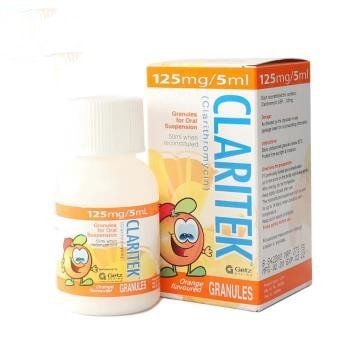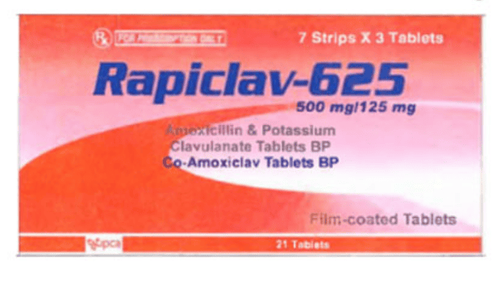The article was consulted with Dr. Trần Minh Tuấn, Specialist Doctor I in Ear, Nose, and Throat, Head and Neck Surgery - General Surgery Department - Vinmec Nha Trang International General Hospital.
Tonsillectomy is a relatively simple and safe surgery. However, post-operative care is very important, and improper care may lead to complications. Therefore, the question "What should be avoided after tonsillectomy?" is a concern for many people.
1. What should be avoided after tonsillectomy for a faster recovery?
After tonsillectomy, it is important to avoid certain foods that may irritate the surgical site, help ease discomfort, and reduce pain. Here are some foods to avoid:
- Hard foods: In the first 10 days after surgery, it is best to stick to soft foods like porridge or milk to provide necessary nutrients. Avoid hard or rough foods such as popcorn, nuts, sugarcane, etc., as these can irritate the surgical site, causing pain, difficulty swallowing, and potential bleeding. Additionally, hard candies and nuts like almonds, walnuts, flaxseeds, and chestnuts are difficult to chew and swallow.
- Foods that are too hot or too cold: This is another category of foods to avoid after tonsillectomy. Not only after surgery but also for people with tonsillitis, doctors generally recommend avoiding foods that are too hot or too cold, as they can irritate the tonsil lining.
- Sour or spicy foods: These types of foods should be avoided both during tonsillitis and after tonsillectomy, as they are not good for health. Particularly sour or spicy foods can cause a burning sensation in the throat, especially around the recently removed tonsils, leading to pain and discomfort. Pickled foods (such as radishes, pickled cabbage, cucumbers) and foods prepared with a lot of spices (garlic, chili, pepper) should be avoided.
- Foods high in fat: Similar to spicy and sour foods, fatty foods should also be avoided after tonsillectomy. High-fat foods can accumulate in the throat after eating and, if left there for a long time, may cause infection or inflammation at the surgical site. Furthermore, fatty foods are not good for cardiovascular health and can cause discomfort in the throat due to internal heat.
- Stimulants: After tonsillectomy, since the wound has not healed and your body is still recovering, consuming stimulants like alcohol, cigarettes, or coffee can worsen the infection and delay healing. Even after the wound has healed, the risk of tonsil inflammation may still be high.
- Raw or undercooked foods: It is essential to keep the surgical site clean and sterile. Consuming raw or undercooked food can cause serious infection at the surgical site. That's why people who have had tonsillectomy should avoid raw or undercooked foods, salads, or raw vegetables. Additionally, raw foods are often tough and not ideal for the throat and digestive system.
- Carbonated drinks: Normally, carbonated drinks can irritate the throat and induce coughing. Intense coughing can damage the tonsillectomy site and cause bleeding. Once bleeding occurs in the tonsil area, it can be difficult to stop, leading to dangerous complications. Furthermore, carbonated drinks and stimulants may reduce the effectiveness of medications like antibiotics or anti-inflammatory drugs.
- Avoid clearing the throat after tonsillectomy: Clearing the throat after surgery may worsen the condition and increase the risk of bleeding at the surgical site.

2. What should be eaten after tonsillectomy?
Knowing what to avoid after a tonsillectomy is important, but it’s also crucial to establish a balanced and nutritious diet to promote wound healing and quick recovery. Here are some foods you should eat after the surgery:
- Soft and liquid foods: Since the wound is still fresh and your throat may be sore, soft and liquid foods such as soups, porridge, pho, broths, and smoothies are good choices. These foods should be allowed to cool to make them easier to swallow and prevent injury or bleeding of the tonsil area.
- Vegetables and fruits: The vitamins, fiber, and minerals in vegetables and fruits help boost your immunity and accelerate recovery. You should choose vegetables like amaranth, spinach, or types of gourds, pumpkins, potatoes, which can be steamed or boiled to make them easier to eat. For fruits, you can juice them or blend them into smoothies and drink with yogurt to get the most nutrients. However, avoid acidic fruits like tangerines, oranges, or grapefruit, as they may cause discomfort around the wound.
- Protein and zinc-rich foods: Zinc helps boost immune function and supports wound healing. Therefore, after tonsillectomy or other surgeries, you should include protein and zinc-rich foods such as salmon, animal liver, and nuts. However, be mindful of portion sizes and cooking methods to ensure they are gentle on your digestive system and suitable for your recovery.
- Drink plenty of water: Water helps with metabolism and detoxification. After tonsillectomy, make sure to drink at least 2 liters of water daily. However, avoid drinking ice-cold water or carbonated beverages. Stick to slightly warm water to keep your throat comfortable.
In addition to a proper diet, ensure adequate rest, maintain good oral hygiene, follow your doctor’s medication instructions, and attend follow-up appointments. This will help your tonsillectomy wound heal quickly and support overall recovery.
To arrange an appointment, please call HOTLINE or make your reservation directly HERE. You may also download the MyVinmec app to schedule appointments faster and manage your reservations more conveniently.
To arrange an appointment, please call HOTLINE or make your reservation directly HERE. You may also download the MyVinmec app to schedule appointments faster and manage your reservations more conveniently.








